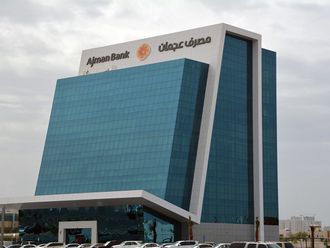Investors in Indian financial markets should brace for a nail-biting week as they await the annual budget on February 28, which could either be a watershed or a damp squib. The stakes are undoubtedly high with stock indices hovering near all-time peaks and cumulative foreign portfolio holdings at more than $330 billion (Dh1.21 billion).
The budget will test Prime Minister Narendra Modi’s credentials as a business-friendly, reform-minded leader who wants to tear down barriers holding up investment, make India a global manufacturing hub, create jobs for the millions that universities churn out every year and lift economic growth towards double-digits.
Because the government is cash-strapped, caused by lower-than-estimated growth in tax revenues and high subsidy bills despite big savings from a slump in oil prices, New Delhi will have to depend upon the private sector and foreign investors to pump in money for building highways and stepping up output.
This can happen only if doing business is made easy — India currently stays at near the bottom of countries around the world on this scale. Deepak Parekh, chairman of Housing Development Finance Corp and a reputed business leader, said this week that though right noises have been made by the Modi administration there has not been much progress on the ground to help revive confidence to start investing.
Although euphoria that swept the stock markets in January has ebbed, expectations on the budget are high, so much so that any disappointment could trigger a strong round of profit-taking.
“We believe the Indian budget … will be important, and more so than ever. Commitment to reform and pro-growth policies will be required to sustain the current high valuations for Indian equities,” HSBC said in a report authored by senior executives Herald van der Linde, Devendra Joshi and Jitendra Sriram.
The global investment bank, like many others, is overweight on India because of the huge potential the country offers to boost growth and returns on investment.
“The sectors we like within India are industrials, materials, telecom, utilities and private banks,” HSBC said, picking stocks like Asian Paints, Bharti Airtel, Hindalco, Hindustan Petroleum Corp, Hindustan Zinc, IDFC, Larsen & Toubro, Maruti Suzuki, Tata Powers and Tata Motors among others that it preferred.
After rising 4.4 per cent over seven days, the top-30 Sensex ended down on Friday at 29,231.14. The market is likely to be volatile in the coming week.
Three themes
According to brokerage Ambit Capital, three sets of themes are likely to receive a boost in the budget.
“Firstly, select infrastructure stocks (such as Coal India, Power Grid Corp and Alstom T&D) and plays on the low-cost housing story (such as Orient Cements, Finolex Cables and V-Guard) stand to benefit from the government’s focus on infrastructure creation,” analysts Ritika Mankar Mukherjee and Sumit Shekhar said in a report.
Secondly, plugging of subsidy leakages through direct cash transfers is likely to cause a redistribution of wealth in favour of the poorest sections of society. This should boost rural consumption, especially for products used by those at the bottom of the pyramid. So companies and brands that that get 40-50 per cent of their revenue from rural regions like Hindustan Unilever, Dabur and Colgate should gain, they wrote.
Finally, cash transfers to provincial governments will be conditional on growth-centric policies followed by the states, which will mean that the manufactured exports themes will receive a boost.
“Stocks such as TVS Motors, AIA Engineering, VA Tech and PI Industries stand to benefit from this theme,” the analysts said.
The government is also set to step up spending on defence, transmission and distribution of electricity and on railways.
“The contracts for supplying equipment for this kind of capital expenditure are likely to go to a mixture of public and private sector firms. Hence, BEL, PGCIL, Alstom T&D as well as Techno Electric are well placed to benefit from the coming step-up in government spending,” the brokerage said.
Land, taxes
Two reforms that investors will be closely watching are land and taxes — both need changes to enable companies to invest in new projects.
Despite its land mass, India is actually one of the most land-scarce countries in the world, and this makes getting land to build roads or hospitals a difficult task, HSBC said. Brazil, another emerging economy, has 20 times more land per capita than India.
“This, combined with outdated land laws and no system of certifying land titles, has resulted in substantial litigation on land acquisitions,” HSBC said.
Taxes are a big issue because of the authorities’ arbitrary decisions, which enhances risk of doing business in India. Vodafone’s case is a classic example of high handedness that can mar foreign investors. The previous Congress government made legislative changes to overcome a Supreme Court ruling that favoured Vodafone in a tax dispute.
Although Modi had decried the retrograde tax during his election campaign, the law still remains in the books and hangs like a Damocles’ sword. The budget is widely expected to announce the scrapping of this law, and the government would have to live up to that if it wants foreign investment to pick up.
— The writer is a journalist based in India.












